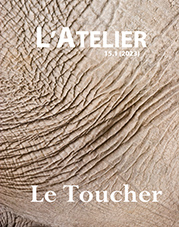Amputated Limbs and the Politics of Touch in Claude McKay’s Romance in Marseille
Abstract
This paper explores the poetics and politics of touch in Claude McKay’s recently recovered modernist novel Romance in Marseille (1929-1933, published in 2020). Through an emphasis on the protagonist Lafala’s “dancing legs”, the narrative posits strong connections between black identity and touch — both the sensuality of dancing and the ability to touch the African soil. Yet these connections are irrevocably severed by the traumatic experience the novel opens with: stowing away on a transatlantic liner, Lafala is discovered and locked up in the glacial latrines, in conditions evocative of the triangular trade, which causes him to lose his legs to frostbite. Adopting an intersectional viewpoint, I analyze the novel’s ambivalent reflection on how disability intersects with and transforms Lafala’s racial identity and class status in unexpected and paradoxically empowering ways, resulting in a “Pyrrhic victory” that becomes the catalyst of new, more heightened touching experiences (in the combined senses of haptics and affect).
Downloads
Published
Issue
Section
License
- Work submitted for publication must be original, previously unpublished, and not under consideration for publication elsewhere. If previously published figures, tables, or parts of text are to be included, the copyright-holder's permission must have been obtained prior to submission.
- Authors of accepted manuscripts will assign to L'Atelier the right to electronically distribute their article, or publish it in any form (Internet, CD ROM, printed copy) but authors will retain copyright and, after the article has appeared in L'Atelier, authors may republish their text (in print and/or electronic form) as long as they clearly acknowledge L'Atelier as the original publisher.


